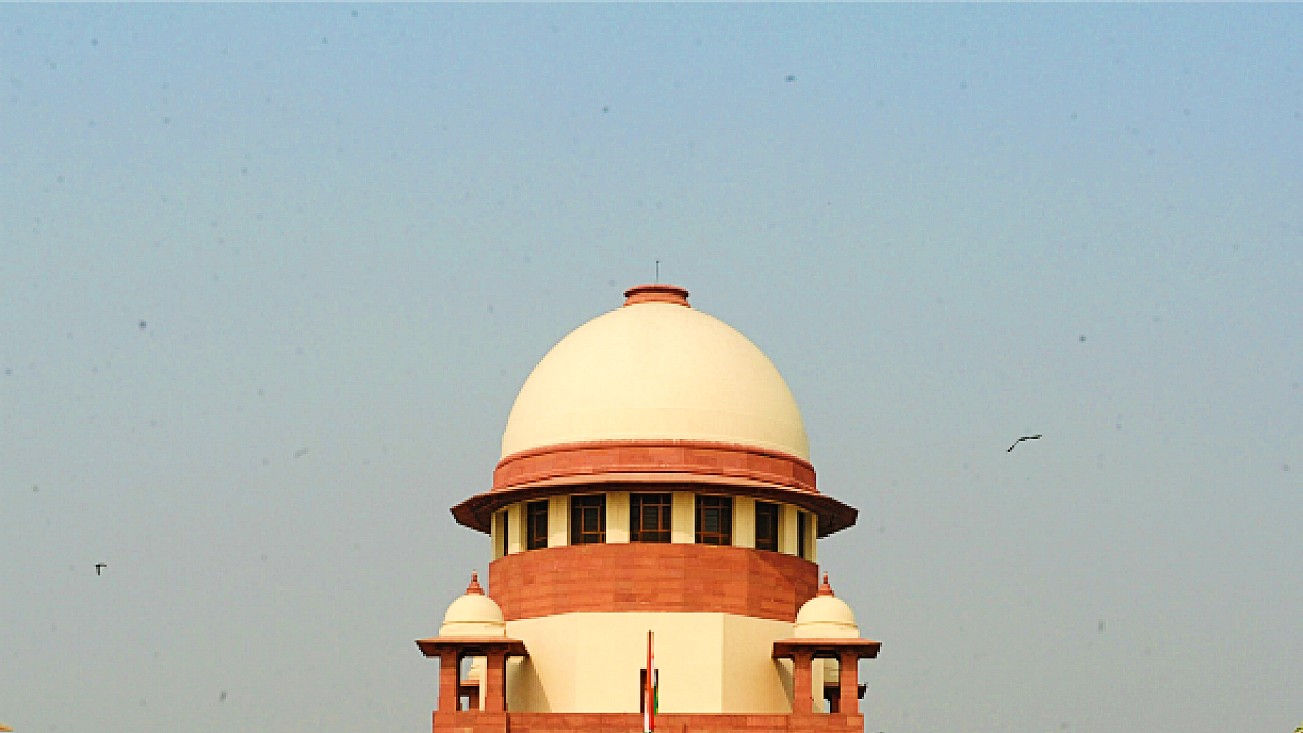In Criminal Appeal No. 2697 of 2023 -SC- Supreme Court upholds life imprisonment for man who killed wife by setting her on fire, says he took ‘undue advantage’ of situation
Justice Abhay S. Oka & Justice Pankaj Mithal [01-11-2023]

Read Order: Anil Kumar V. The State of Kerala
Chahat Varma
New Delhi, November 2, 2023: The Supreme Court has upheld the life imprisonment sentence of a man who burned his wife to death. The Apex Court held that the husband took ‘undue advantage’ of the situation by lighting a matchstick and throwing it at his wife, who was already drenched in kerosene.
In the case at hand, an FIR was initially registered under Section 307 Indian Penal Code (IPC), wherein it was stated that the deceased wife, due to unbearable mental and physical harassment caused to her by the appellant, poured kerosene upon herself to deter the appellant from causing further torture to her and that the appellant with the clear intention to kill her, took advantage of the situation and lighted the matchstick and threw it on her body. Thus, the deceased wife was inflicted with burn injuries by the appellant with clear intention of killing her. Subsequently, when the deceased wife died in the hospital, the case was converted to Sections 302 and 498A of IPC.
The appellant's defence was that he was not responsible for burning his wife and that she had a history of suicidal tendencies. However, both the Trial Court and the High Court rejected this defence due to the substantial evidence on record documenting their frequent quarrels and the harassment the deceased wife endured.
The division bench, comprising Justice Abhay S. Oka and Justice Pankaj Mithal, observed that the appellant and the deceased wife had a history of quarrels, which continued on the fateful day. During their argument, a neighbour visited their house and saw injuries on the deceased wife from the earlier assault. However, he left, intending to return later. Subsequently, the act of pouring kerosene and setting the deceased on fire occurred. The presence of sufficient time between these two acts indicated that there was no sudden quarrel and provocation leading to the burning. The appellant deliberately lit the deceased wife, who was already drenched in kerosene, showing a premeditated intent to kill her.
The bench emphasized that the appellant cannot invoke the 4th Exception to Section 300 IPC merely by claiming that the act was not premeditated, did not stem from a sudden fight, or that his intentions were not malicious. Even if he attempted to douse the fire and save the deceased's life, the benefit of this exception would not apply because he had taken undue advantage of the situation.
The bench observed, “The exception clearly in unequivocal term states that it would be applicable where culpable homicide is committed not only without premeditated mind in a sudden fight or quarrel but also without the offender taking ‘undue advantage’ of the situation.”
The bench noted that in this case, the appellant, upon seeing the deceased drenched in kerosene, took undue advantage of the situation by lighting a matchstick and throwing it at her to cause her to burn. This action of the appellant, taking ‘undue advantage’ of the situation, disqualified him from receiving the benefit of Exception 4 to Section 300 IPC, and the case fell under Part-II of Section 304 IPC.
Consequently, the division bench ruled that the lower courts did not make any error in convicting the appellant and sentencing him to a maximum punishment of life imprisonment.
Sign up for our weekly newsletter to stay up to date on our product, events featured blog, special offer and all of the exciting things that take place here at Legitquest.




Add a Comment